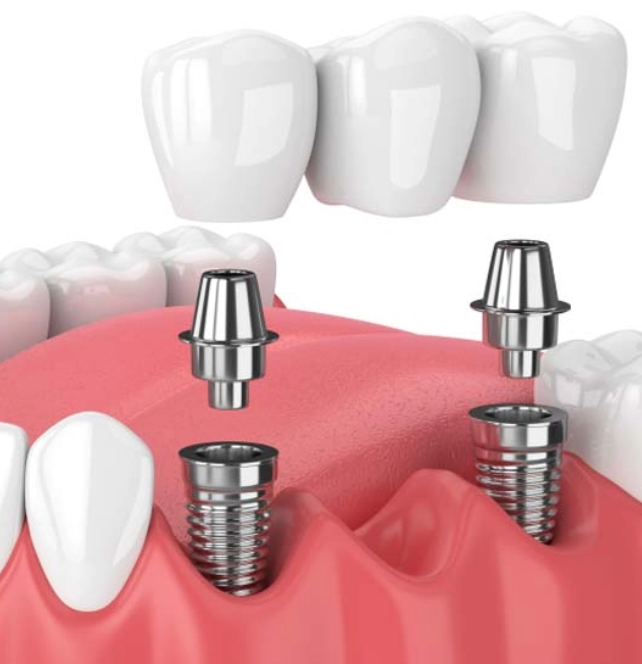Dental Implants For
Missing Teeth
If you suffer from periodontal disease or missing teeth, dental implants are an excellent treatment option. A dental implant is a small post or screw, typically made of titanium, that is securely inserted into the natural jaw bone to act as the root of the tooth. An artificial tooth (crown) is then attached and supported by the post.
When a tooth is extracted or missing, the jawbone begins to deteriorate over time and changes the appearance of the face and smile. Dental implants are fixed into the jawbone. Using the new tooth and chewing helps stimulate bone regrowth, keeping the jawbone healthy and preventing it from shrinking.


Natural-looking results
Dental implants are designed to look, feel, and function like a natural tooth. Lorem ipsum dolor sit amet lorem ipsum dolor amet dolor

Durable
With the proper care, dental implants are expected to last a lifetime. Be sure to regularly visit your dental professional to ensure the implant is healthy.

Little maintenance
Dental Implants require very little maintenance. You may continue to brush and floss normally twice a day as if it is your natural tooth.
What You Need To Know About Dental Bridges
If you are missing a tooth between two healthy teeth, a dental bridge essentially bridges the gap between your teeth. A dental bridge is a false tooth that is attached to the surrounding healthy teeth to replace the missing tooth. The two surrounding teeth are shaved down to accommodate the dental bridge.
Key Differences Between Dental
Implants And Dental Bridges
As you can see, there are several differences between dental implants and dental bridges. The critical differences between the two:

Aesthetic.
Dental implants give a natural-looking result, while dental bridges are much more noticeable.

Cost.
Dental bridges may be less expensive than dental implants. However, dental implants are much more cost-effective and designed to last a lifetime.

Time.
Dental bridges may be completed in two visits within a few weeks. Dental implants may take three to six weeks due to the healing process.
When choosing your teeth replacement option, it is essential to research and consult with your dental professional to understand your options. For more information about dental implants and dental bridges, contact us at (877) 830-5689.
